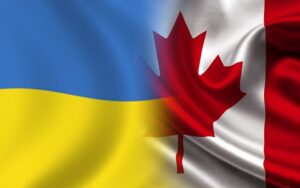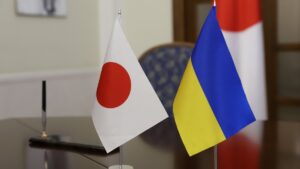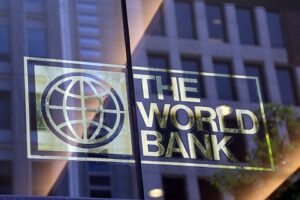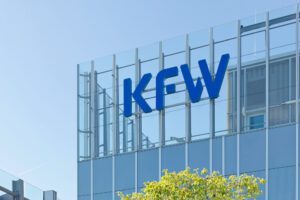
The shareholders of PJSC “Production Association” Stalkanat “(Odessa) intend to raise financing in the form of a loan or other financial instruments in the amount not exceeding UAH 1 billion for a period of not more than 5 years.
Such an issue is included in the agenda of the extraordinary general meeting of shareholders scheduled for October 14 of this year, which will be held remotely. The decision to hold the meeting was made by the Supervisory Board of the company on September 26 this year.
At the meeting, the shareholders intend to agree to the receipt by the company of credits / loans (acceptance / receipt of monetary obligations, other financing, funds / obligations), overdrafts, guarantees, letters of credit and / or any other banking products / services by concluding relevant agreements and additional agreements thereto.
At the same time, the amount of attracted financing cannot exceed UAH 1 billion with a term of such obligations of no more than 5 years, but no later than September 1, 2027.
In addition, the shareholders intend to agree to pledge/mortgage the company’s property (real, movable) and/or conclude other agreements to ensure the fulfillment of obligations in the amount of not more than UAH 1 billion.
As reported, the general meeting of shareholders held on September 3, 2021 decided to separate from PJSC “Stalkanat-Silur” and create a new company – PJSC “Stalkanat” with the transfer of part of the property, rights and obligations to it in accordance with the approved distribution balance.
Director General of Stalkanat-Silur Sergey Lavrinenko explained earlier to the Interfax-Ukraine agency that all shares of Stalkanat PJSC being created are distributed among all shareholders of Stalkanat-Silur PJSC. The shareholders agreed to spin off the Stalkanat company, to which the Odessa industrial site will be transferred. In turn, PJSC “Stalkanat-Silur” will also remain, on the balance sheet of which will be “Silur”, located in a temporarily uncontrolled territory (Khartsyzsk, Donetsk region).
PJSC “PA “Stalkanat-Silur” (Odessa) previously had two branches – in Odessa and in Khartsyzsk, Donetsk region on the tubing. “. Later, the management of PJSC “PA” Stalkanat-Silur “announced the seizure of the company’s branch in Khartsyzsk on the NKT, sent a corresponding statement to the National Police.
According to the NDU, for the fourth quarter of 2021, David Nemirovsky (Ukraine) owns 50.0001% of the company’s shares, Anton Mikhalenko – 23.7%, Edery Liron (both Israel) – 23.1%.
The authorized capital of Stalkanat-Silur is UAH 26.083 million.

A CAD 450 million (equivalent to $350 million) concessional loan from Canada has been transferred to the state budget of Ukraine.
According to a press release from the Ministry of Finance on Thursday, the funds were provided through the mechanism of the Administrated Account of the International Monetary Fund (IMF). The amount of the loan from Canada is CAD 1.45 billion (equivalent – $1.2 billion). The repayment period is 10 years, the interest rate is 1.69% per annum.
Minister of Finance of Ukraine Serhiy Marchenko thanked the Government of Canada and Deputy Prime Minister, Minister of Finance of Canada Chrystia Freeland for their uncompromising support of Ukraine.
Ambassador of Ukraine to Canada Yulia Kovaliv said that the allocated funds will be used to purchase natural gas to support the heating season.
According to her, the total amount of financial assistance to Ukraine from Canada since the beginning of the war has reached CAD 1.95 billion.

Ukraine has received an additional 65 billion Japanese yen (approximately $500 million) in a soft loan under a loan agreement signed by Finance Minister Sergei Marchenko and Japan International Cooperation Agency JICA President Akihiko Tanako.
The loan was granted on preferential terms: the loan repayment period is 30 years, including a grace period of 10 years; the interest rate is 1% per annum, the Ministry of Finance said on Monday.
The funds were sent to the state budget to finance priority social and humanitarian expenditures, health care, the ministry specified.
The Ministry of Finance recalled that on June 7, the governments of Ukraine and Japan signed an additional agreement on a JICA loan for a development policy in the field of emergency economic recovery. The agreement increased the loan amount by 65 billion Japanese yen, bringing the loan amount to 78 billion Japanese yen (about US$600 million).
Ukraine received the first 13 billion Japanese yen (about $100 million) under the said agreement on May 24.
The Ministry of Finance expected that in June the volume of external financing will increase to $4.8 billion compared to $1.5 billion in May, but before this Japanese loan since the beginning of the month it has so far amounted to only about $1.5 billion.

The World Bank will soon provide Ukraine with a $100 million loan to help internally displaced persons (IDPs), World Bank Regional Country Director for Eastern Europe Arup Banerji has said.
He said in an interview with Interfax-Ukraine that given the acute need for central budget financing, the World Bank is currently focusing on providing quick and immediate assistance, which, in turn, can help the population, especially the most vulnerable groups of the population. First, very soon we will allocate another $100 million to help internally displaced persons, he said.
Banerji added that the World Bank continues to provide assistance in the healthcare, infrastructure and energy sectors under existing projects.
We are also exploring opportunities for cooperation with other bilateral development partners (for example, Italy, Japan and the United States) who are very interested in attracting PEACE (Project Support to Public Expenditure to Sustainable Public Administration in Ukraine) loan and funding others types of confirmed budget expenditures, the World Bank regional director noted.
Specific items have not yet been agreed, but will certainly include additional payments to internally displaced persons and other vulnerable groups in Ukraine, Arup Banerji added.
HELP, IDPS, LOAN, WORLD BANK

The Credit Institution for Recovery (KfW) transferred EUR 150 million to the state budget of Ukraine on Friday for a 15-year loan with a five-year grace period, the Finance Ministry said.
“Today, another loan from the Credit Institution for Recovery (KfW) in the amount of EUR 150 million was transferred to the state budget of Ukraine. These loan funds were provided as co-financing of the Additional Financing of the Development Policy Loan in the Conditions of Emergency Economic Situation of the International Bank for Reconstruction and Development,” — The Finance Ministry announced on its website on Friday.
The funds raised will be directed to social spending and spending in education and health, the ministry said.

Canada will provide Ukraine with a loan in the amount of CAD 1 billion for a period of 10 years, a draft government decree testifies, and the terms of such a loan are being agreed.
As stated in Decree No. 639 of May 31, the interest rate on the loan will be equal to the base interest rate of the IMF, while the grace period will be 4.5 years.
Interest will be paid every six months after the end of the grace period, the document states.